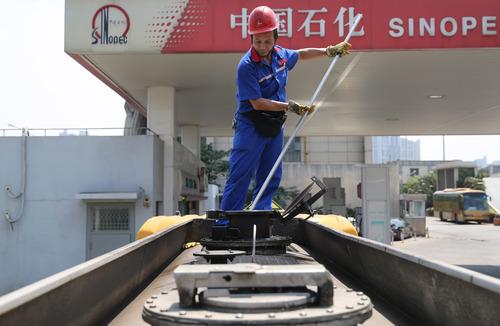BEIJING, March 8 (Xinhua) -- Two production lines of meltblown non-woven fabric have been set up and put into operation in Beijing on Sunday, according to Sinopec Beijing Yanshan Petrochemical Co., Ltd.
They are expected to manufacture four tonnes of fabric that can be made into 1.2 million N95 respirators or six tonnes of fabric for 6 million surgical masks every day.
As the essential material to make medical masks, meltblown non-woven fabric is the filtering layer in the middle part of the mask. The width of the fabric's fiber is about 0.5 percent of that of a human hair. Each fiber is full of polarized charges, creating a weak electric field. This means that the fabric can absorb dust, bacteria and pollen effectively.
Sinopec decided on Feb. 24 to set up a total of 10 meltblown non-woven fabric production lines to help make masks, in a bid to fill the demand gap in the fight against the novel coronavirus.
Upon completion, the 10 production lines will be able to produce fabric for 3.6 million N95 respirators or 18 million surgical masks every day.
"The old factory was transformed into two production lines within half a month with the help of the local government," said Jiao Yang, deputy general manager of Sinopec Beijing Yanshan Petrochemical Co., Ltd.
Mask factories have been running at full steam to meet the need of medical protective products since the novel coronavirus outbreak. The daily production capacity of protective clothing has increased to 500,000 suits from less than 20,000 suits, while that of regular masks has risen to 100 million units, according to Ding Xiangyang, deputy secretary-general of the State Council.




 A single purchase
A single purchase









